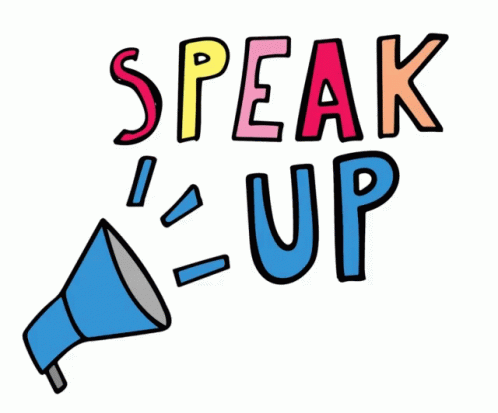
How to Speak Up When it Matters
As racial protests have broken out across the world over the last few weeks, we’ve seen a symbolic coming together to address the widespread issues of racism, inequality and injustice. Up until now, many people have avoided looking at white privilege and racism squarely in the eye. But the hood has been lifted, and many of us have been forced to confront the unjust reality of the world that we live in. A lot of people are wanting to speak up and use their platforms to push for change against inequality. But why has it been so difficult for society to speak up when it comes to topics of race? It’s because speaking up is hard to do, in general. Whether we encounter something ethically questionable, we notice someone not being included, we disagree with an opinion that’s all too quickly become consensus, or like right now, when we want to speak up against racism.⠀⠀⠀⠀⠀⠀⠀⠀⠀
While we’d all like to think that if we saw something bad happening, we’d say something in these situations, we are extremely poor at anticipating how we’ll feel in future circumstances and, for a whole host of cognitive reasons, it can be incredibly difficult to speak up in the moment. In fact, research suggests that most people tend to not act, and then rationalise their inaction. Which is what has been happening for years. But now seems to be different. People are wanting to speak out and they’re wanting to do something.
So what can they/you do?⠀⠀
We must first realise how difficult it could be to speak up, but that it’s also worthwhile and important. Research on ‘realistic optimism’ shows that when people set out to do difficult, personally meaningful things, they’re more likely to follow through if they expect that the task will be challenging. In speaking up, as in life, one must appreciate the difference between believing you will succeed and assuming that you will do so easily. When women on a weight-loss program were studied, it was found that those who thought they would succeed lost 12 more kilograms than self-doubters. However, those who thought they would easily succeed lost 10 kilograms less than their more realistic peers. It’s crucial to recognise that speaking up won’t necessarily feel easy to do.
Next, do what you can to minimise the social threat that speaking up might create. Recognise the need to speak about institutions and not individuals. You’re not attributing ill will to a group (or groups of people), you want to speak about broader systems and institutions.
Lastly, have a strategy and a plan. A lack of clarity and uncertainty breeds inaction. When you’re put on the spot, not knowing what to do is a primary reason for not acting. It’s the difference between thinking ‘I’m not sure what to do’ and ‘I’m really prepared for this’. Hence the need to create a plan. People who make plans are 300% more likely to reach their goal than those who don’t. Even though you won’t be able to predict the specifics of every situation, creating a plan for how you could speak up (whether on social media or at a family gathering) can significantly increase the likelihood that you do so when the moment presents itself. Start by identifying in advance the kinds of situations you’re likely to face in your role where you may need to speak up. Then decide how you will approach and handle each situation - will you have a direct conversation that challenges somebody else, or will you use another approach? If you do speak up, how will you start the conversation? Together, these steps will form your if-then plan. If you see this, then you’ll do that. It’s these conversations and situations that are important when it comes to addressing the important issues we’re facing right now. And having a plan will allow you to speak with impact.
Speaking up and communicating how you feel matters right now. Are you going to do it?